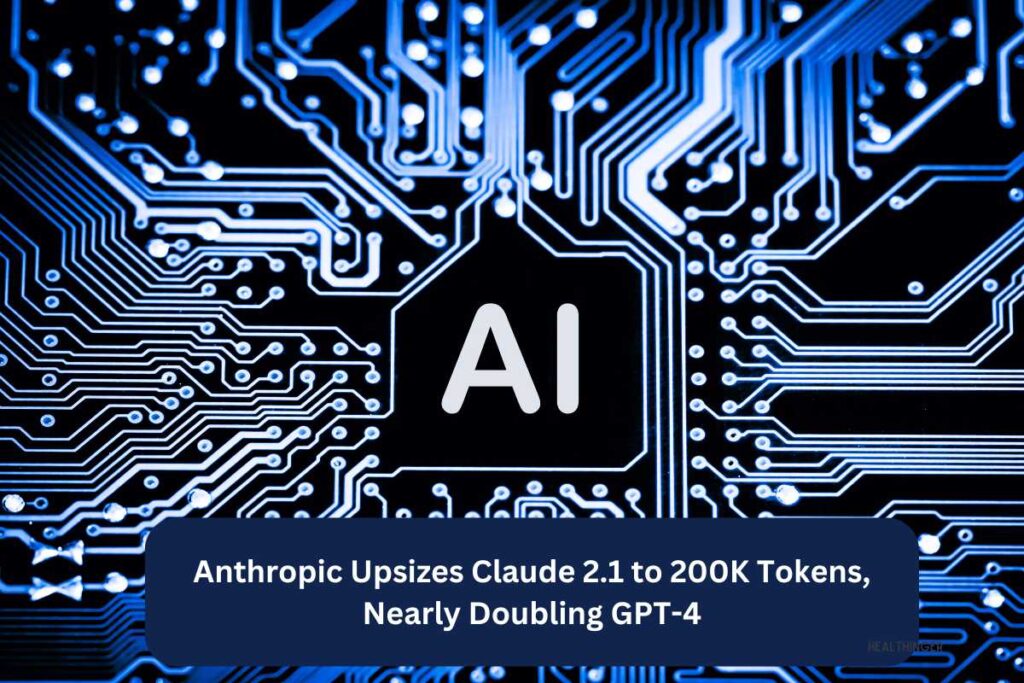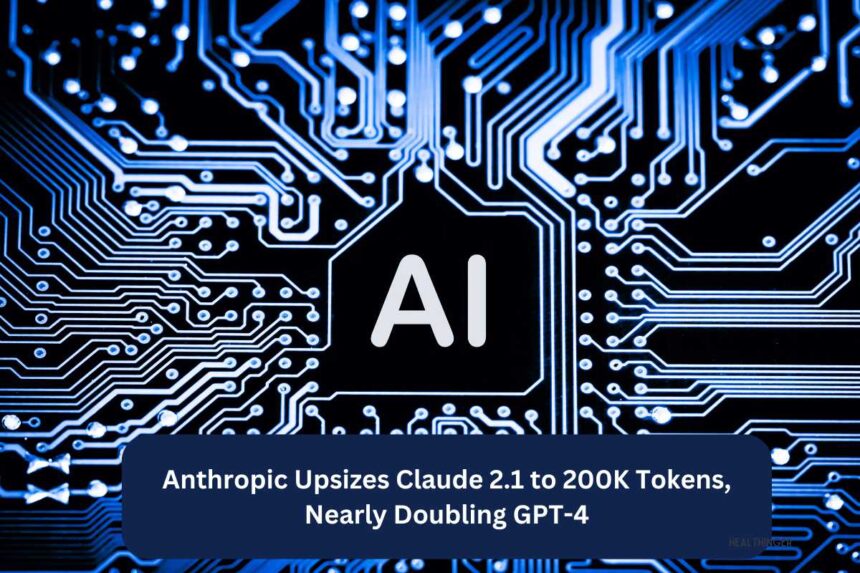Understanding Tokens in AI Models

To appreciate the significance of this milestone, it’s essential to understand the role of tokens in AI models. Tokens can be words, parts of words, or characters used by models to process and generate language. A model with a higher token capacity can better understand and generate complex and lengthy texts, offering nuanced responses and handling more context in conversations.
The Evolution of AI Model Capacities
The evolution of AI models has been staggering, with substantial increases in token capacities. Early models managed a few thousand tokens, which limited their ability to grasp context over extensive texts. OpenAI’s GPT-3, boasting 175 billion parameters, could handle around 2048 tokens. GPT-4, with its 100K tokens, represented a quantum leap, enabling richer and more coherent outputs.
Anthropic’s Claude 2.1, now at 200K tokens, represents not just a step, but a stride. This expansion promotes deeper context understanding, better long-term memory in interactions, and the ability to generate and comprehend more extensive documents more accurately.
Advantages of Increased Token Capacity

The benefits of increased token capacity are multifaceted:
- Enhanced Context Understanding: Longer conversations and documents maintain coherence and context for extended periods.
- Improved Language Generation: Generates more accurate, longer, and contextually appropriate responses and texts.
- Better Long-term Memory: Handy in applications such as customer service or personal AI assistants, maintaining context across multiple interactions.
- Complex Query Handling: Capable of tackling intricate questions that require understanding multiple facets or retaining information over lengthy explanations.
Comparing Claude 2.1 and GPT-4
While GPT-4’s capabilities have been highly celebrated, Claude 2.1’s upscaling to 200K tokens sets a new benchmark. Here’s a comparative analysis:
1. Token Capacity
GPT-4: 100K tokens
Claude 2.1: 200K tokens
2. Contextual Understanding
With twice the token capacity, Claude 2.1 can hold context over longer conversations and documents, potentially reducing the need for repeating information in interactions.
3. Application Suitability
Claude 2.1’s enhanced capacity makes it suitable for applications requiring extensive data comprehension and generation, such as legal document analysis, complex customer queries, and academic research.
4. Performance and Efficiency
Despite similar underlying architectures, Claude 2.1’s token capacity can lead to improved performance in tasks demanding long contextual memory, though it might also require more computational resources.
Potential Applications of Claude 2.1
The potential applications of an AI model with 200K token capacity are vast:
1. Customer Support
With the ability to remember and reference previous conversations, AI assistants can provide more personalized and effective support, enhancing customer satisfaction.
2. Content Creation
AI can generate intricate articles, stories, and reports without losing context, aiding writers and content creators in producing high-quality content efficiently.
3. Legal and Medical Assistance
In fields requiring deep understanding and analysis of extensive documents, such as law and medicine, Claude 2.1 can assist in reviewing and interpreting complex texts.
4. Research and Academics
Academicians and researchers can benefit from AI that can read, comprehend, and synthesize large volumes of academic texts, aiding in literature reviews and research synthesis.
Challenges and Considerations
Despite its advantages, upscaling AI models to higher token capacities also introduces challenges:
1. Computational Resources
Higher token capacities require significantly more computational power and memory, possibly leading to increased costs and resource management issues.
2. Ethical Considerations
With enhanced capabilities, the ethical use of AI becomes even more critical. Ensuring bias mitigation, privacy protection, and responsible use of these powerful models is paramount.
3. Data Privacy
Handling larger context and more data increases the risk of privacy breaches. Ensuring robust data privacy measures and compliance with data protection regulations is essential.
The Future of Large Language Models
The leap from GPT-4 to Claude 2.1 signifies a broader trend in large language models (LLMs): continual upscaling to improve performance and utility. Future models could push token capacities even further, leading to more powerful and versatile AI applications.
However, this future depends on addressing the associated challenges effectively. Integrating advanced AI models into society responsibly, ensuring equitable access, and fostering trust through transparency and accountability will shape the trajectory of AI development.
Anthropic’s upscaling of Claude 2.1 to 200K tokens is a landmark achievement, nearly doubling the token capacity of OpenAI’s GPT-4. This advancement enhances the AI’s ability to handle complex, long-form content with superior context understanding and generation capabilities. While this sets a new benchmark in AI performance, it also brings challenges that demand careful consideration.
The future of AI undoubtedly looks promising, with potential applications expanding across various fields. As we navigate this future, balancing innovation with ethical responsibility will be crucial in harnessing the full potential of these advanced AI systems.

